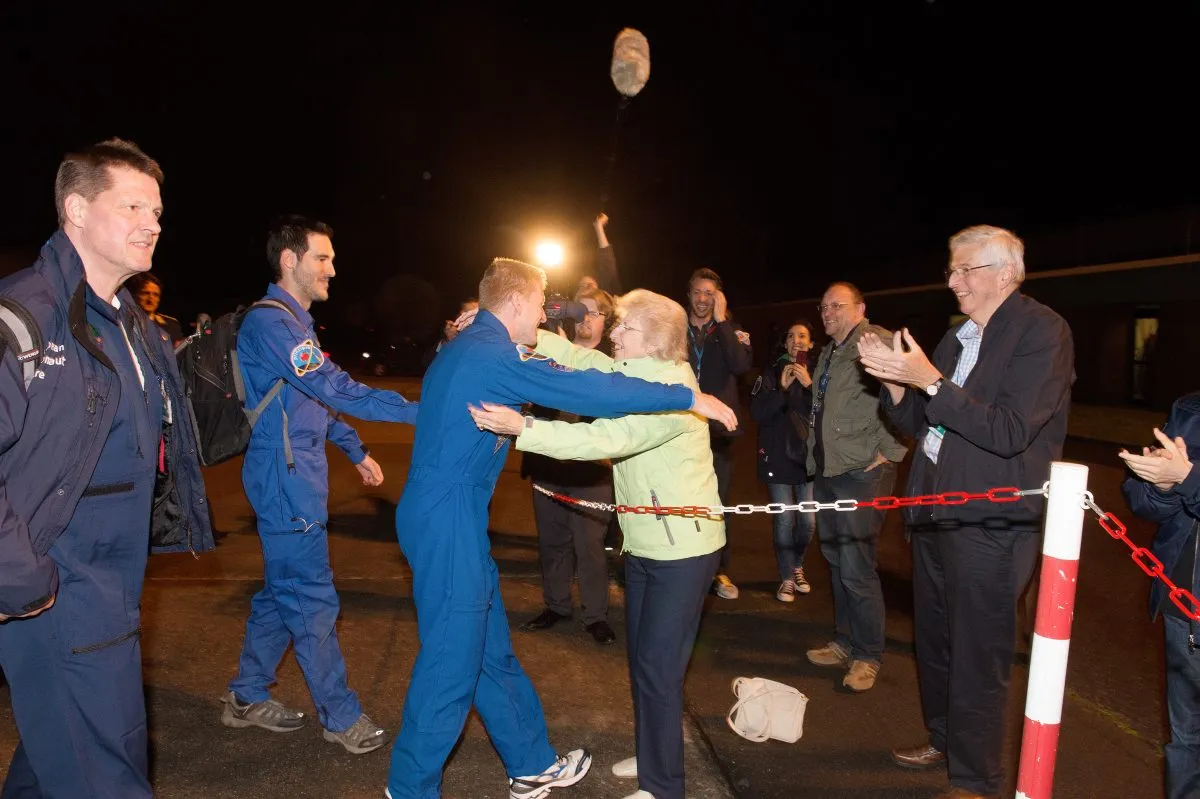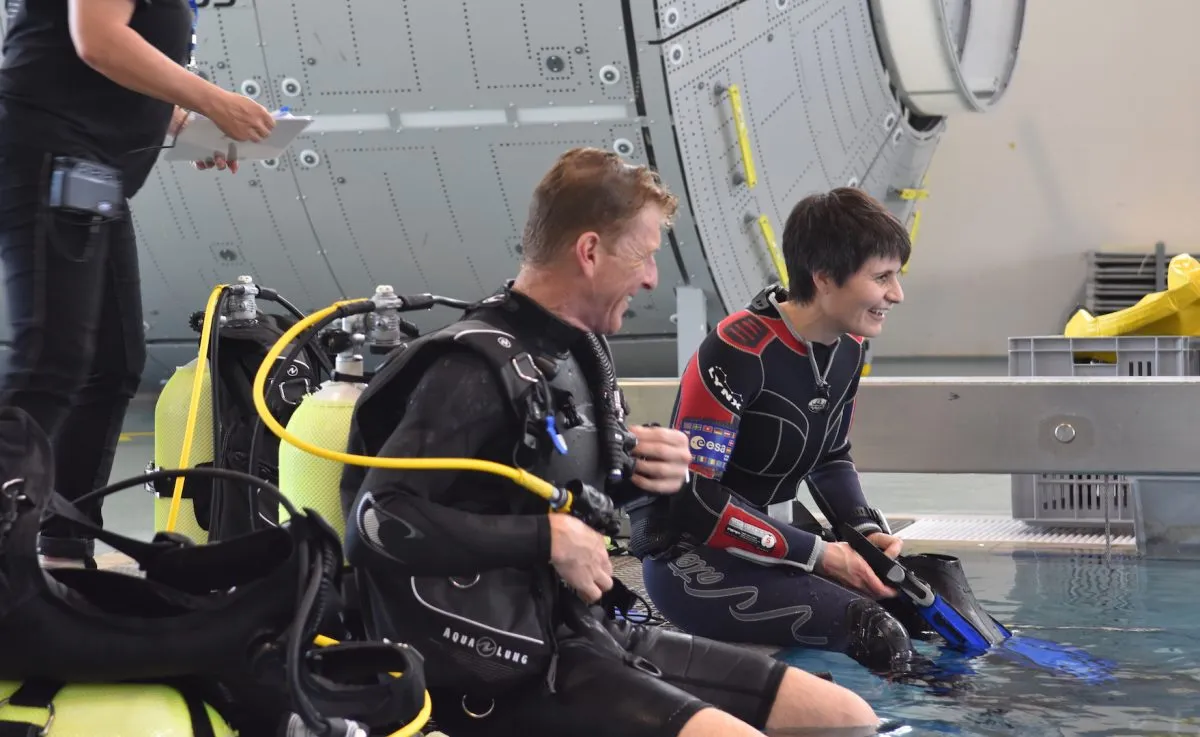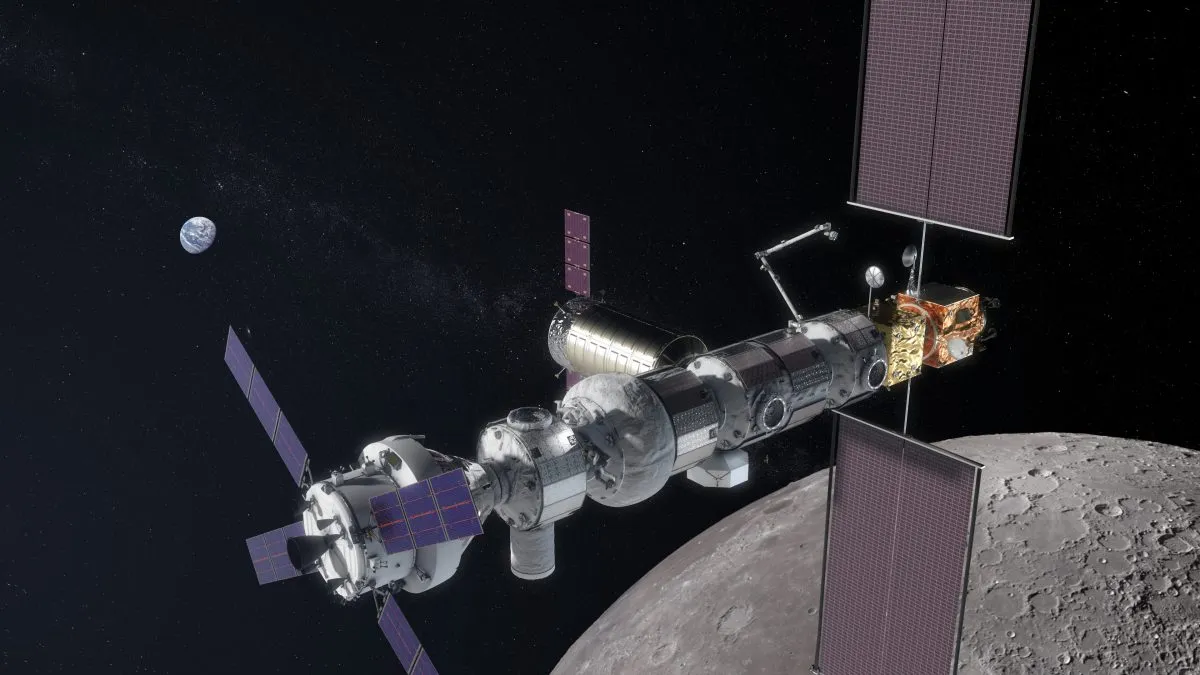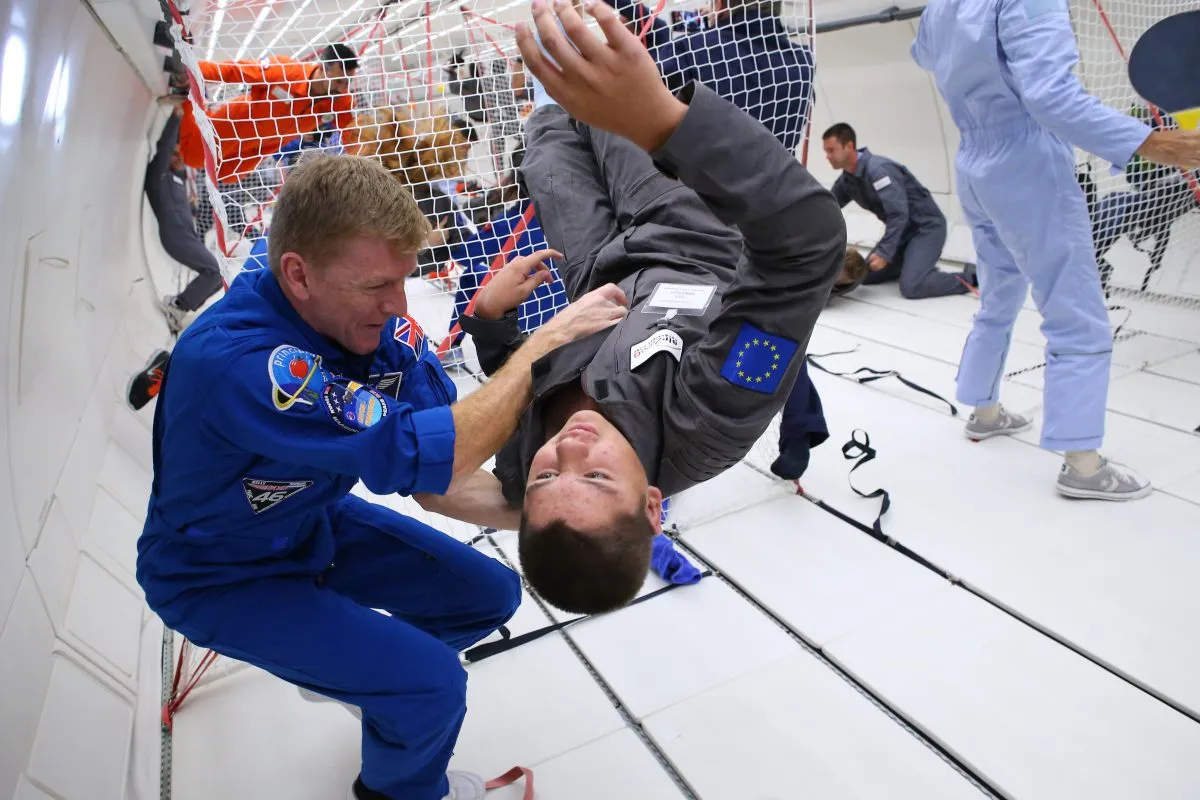Since British ESA astronaut Tim Peake returned to Earth from his highly successful six-month Principia mission onboard the International Space Station in 2015/2016, he has been busy working as Astronaut Operations Team Lead at the European Astronauts Centre (EAC) in Cologne, Germany.
Peake has now decided to take a two-year sabbatical from ESA and will return to the UK from October 2019 to undertake work that will include STEM outreach activities on behalf of the UK Space Agency (UKSA).
- Tim Peake to fly on a US rocket?
- Tim Peake excited to return to space
- 'What space smells like' - by Tim Peake
Peake is still hopeful of flying to the ISS again before 2024 and is excited by ESA plans for future exploration of the Moon and Mars.
Catching up at the EAC, we spoke to him about what the future might hold for both ESA and the UK in space.
Tim, you’re to take two years out from ESA. Why now and what do you hope to do before returning to the EAC in October 2021?
Well, I’ve made a personal decision that now is a good opportunity to take time away from ESA and explore some other exciting things in the UK.
I’m a STEM Ambassador, a Scout ambassador and support the Prince’s Trust, so that will keep me busy amongst other things. I’ll also support the UKSA, interfacing with Sue Horne and Libby Jackson there.
It’s common for ESA staff members to do this type of thing and astronauts Thomas Reiter and Pedro Duque undertook similar sabbaticals in their careers.

Will this break affect your chances of getting a second mission flight to the ISS?
I don’t believe so. I’m going to stay very close to ESA during my UK period and a flight by 2023/4 remains feasible.
Remember that in 2016, ESA Director General Jan Worner stated his intention that all astronauts in the 'class of 2009' will fly twice by 2024.
The ISS flight sequence for ESA astronauts and human spaceflight plans depend on the outcome of the November 2019 ESA Ministerial meeting, of course.
The current mission of Luca Parmitano will extend through until early 2020 – he will be an ISS commander.
After then, successive ESA astronauts should rotate. I’ll be back at the EAC in October 2021 and will continue with my astronaut functions there.
Is there UK funding and support for a future mission for you - as well as other potential UK astronauts who may be selected - perhaps during a new intake post in 2021?
Funding comes under the Human and Robotic Exploration Directorate and ESA’s Exploration Envelope Programme (E3P).
The UK is a major contributor to this programme since robotics such as Exomars and the Rosalind Franklin rover are vital to the UK space industry.
So there shouldn’t really be an issue. UKSA is also supportive of the science and outreach work from human spaceflight and the ISS.

What of the future US spacecraft currently being tested, the Boeing CST-100 Starliner and the Space-X Crew Dragon craft. Will ESA astronauts train and fly on them?
We have been familiarising ourselves with these new orbital spacecraft. It may be of course that Luca’s Soyuz MS-13 mission that launched on 20 July – nicely timed for the Apollo moonlanding anniversary! – was the final Soyuz flight for ESA astronauts for a while.
We should know the seat availability situation on commercial crew vehicles by the end of the year, and the first crewed missions on both spacecraft are expected within the next 12 months.
There was a setback for Space-X when they had an unfortunate ground-test explosion recently, but when these two spacecraft are in service I’m really looking forward to flying on one.
NASA is pressing ahead with the commercialisation of the ISS for industry and private participant astronauts. Are ESA crew members comfortable with this?
It will be an interesting situation, but well-prepared for and safe I’m sure.
There will be technical and procedural agreements with NASA and Roscosmos and so there shouldn't be difficulties.
New short-duration 30 day missions will become more common. Technical issues such as CO2 scrubber replacement timing and safety checks will need adjusting accordingly. ITAR Regs matters can be sorted.
What about Project Artemis and the planned human return to the Moon by 2024-8. Is ESA closely involved and what are the prospects for the UK?
It's very exciting as ESA is providing the service module for the deep-space 4-crew Orion spacecraft that will travel to the Moon and back.
The first module has been delivered this year to the US and several more are under construction in Germany.
This will enable ESA astronauts to have a chance of joining NASA crews on Moon missions as part of Artemis.
Another exciting development is the Gateway lunar orbital space station that is a key component.
Here, ESA is looking at looking at providing future modules such as the ESPRIT unit that will dock onto the core elements, plus the International Habitation module.

How about potential UK lunar exploration involvement and what about Mars?
UK industry is excellent at telecommunications equipment and a future Gateway station making use of that telecom expertise is something that could be achievable.
In terms of human-robotic operations for lunar projects, the UK also now has expertise developed from the Stevenage Exomars rover technology. I did a test on this as part of my Principia mission from orbit.
For future Martian robotic operations this is something the UK could provide, particularly for the Mars Sample Return (MSR) project that would need a 'sample-fetch rover' capability.
Is the current Brexit situation of concern for the UK and ESA projects?
Although about a third of ESA project funding comes from EU sources and projects like Galileo and Copernicus may be affected, this is less of an issue for ESA and the UK.
It will no doubt be discussed at the ESA Ministerial meeting in November this year.

At a personal level, following your six months in space onboard the ISS, after three years do you ever dream of being weightless and are there memories that are still very fresh from then?
Yes, I did have dream that I was weightless, quite recently!
Every time I see film footage from the ISS it takes me back to my time onboard.
One strong memory I recently shared with NASA astronaut Rusty Schweickart of Apollo 9 at a conference was when I experienced an EVA moment during Principia.
I had 10 minutes waiting for the mission tasks to continue, floating at one end of the ISS next to Tim Kopra.
I experienced a strong and calm 'serene' feeling there, looking down at the Earth from 400km up. It really surprised me and it was something that Rusty said he felt too during his spacewalk during the Apollo days.
What about UK space activities generally – do you think there are any key homegrown activities of note occurring?
I’m really excited about the future UK spaceports, with a Scottish vertical launch site for small satellites and Cornish horizontal launch site for both satellites and spaceplanes emerging – the UK could be the first country in Europe to offer this capability.